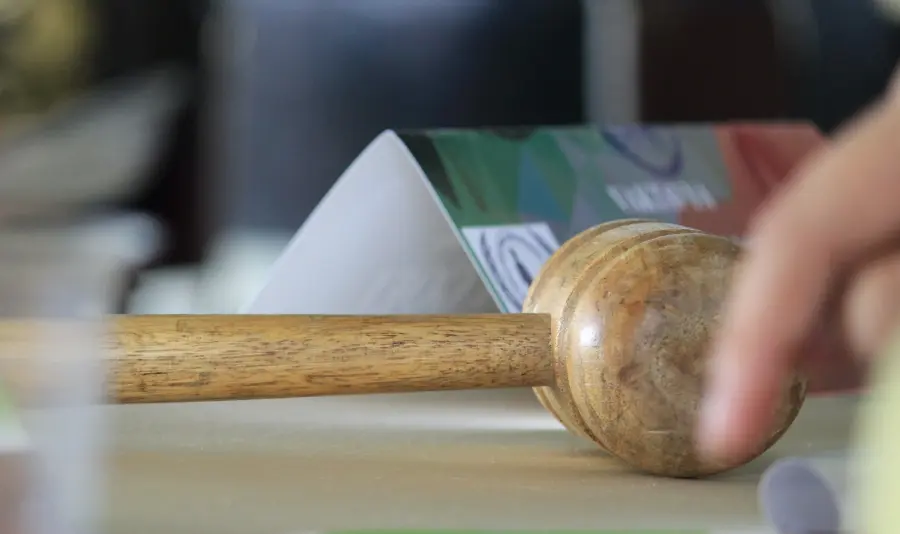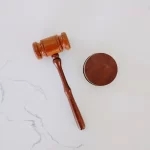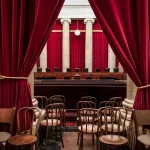The Kingdom of Saudi Arabia is characterized by a legal system deeply rooted in Islamic principles, whereby the Saudi regime seeks to achieve lasting justice.
Therefore, in this article, we will shed light on the final rulings issued by the court, what is meant by the final ruling, and when does the ruling acquires finality. In this article, we will answer these questions in addition to other topics about final rulings, so follow us, as understanding this foundational legal principle is an important matter. Importance for all citizens and the global community.
What is the meaning of a final ruling?
A final ruling is an absolute and immediate decision that the court issues regarding a specific subject of the law. The final ruling is issued and does not consider alternatives. The ruling, in a general way, is considered the final decision issued by the court regarding a case. The final ruling is given this name because it ends the disputes that are before the court. Courts.
The difference between a final and final ruling
A peremptory judgment is an absolute and immediate decision issued by the court regarding a specific subject of law, and a peremptory judgment is issued and alternatives are not considered, and the judgment in a summary manner is considered the final decision issued by the court regarding a case, and the peremptory judgment is called by this name because it ends the disputes that are before the courts.
When does the ruling become final?
The ruling becomes final in the following cases:
- If the case is decided and the ruling was issued by the court of first instance, and there is acceptance by one of the parties involved in the case, then the ruling becomes final.
- If the ruling issued by the courts of first instance is appealed, and the Court of Appeal upholds the ruling or rejects it for a legal reason.
- If the ruling issued by the courts of first instance is appealed, and the appeal is submitted at a time contrary to the period specified by the law, then the appeal is rejected, and the ruling becomes final, as all appeals are limited to a specific time and duration.
- If both parties agree with their consent and waive the appeal, the ruling becomes final.
Call the commercial law experts at the Al Othman office on +966-535-008-888
Conditions for the ruling to acquire finality
In order for a ruling to be final, some conditions must be met:
- The parties to the case must unite on their own and there is no change in their legal positions in order for the ruling to be final, that is, the two parties to the case are personally brought before the courts of first and second instance.
- That the truth has one origin inThe two invitations First and second, the subject matter must be the same in order for the ruling to be final, whether this right is related to a material or non-material thing.
- The cause of action must be one, as the cause of action is the legal incident for which the two parties claim the right before the court. Therefore, the ruling does not acquire finality unless the cause is one.
What is the period for obtaining a final ruling?
AccordinglyFor the material No. 178 of the Law of Procedures in the Kingdom stipulates that the period for obtaining a final ruling is 30 days. During this period, the plaintiff has the right to submit an objection statement, and the rest of the parties to the case lose their right to object if this period expires. Accordingly, the ruling that was issued before is finalized. The courtAs a referee Final, and if the 30 days expire without any objection to the ruling, the ruling automatically turns into a final ruling, but there are some special cases that the court will consider again, and these cases are:
- If the person who is going to file an objection becomes ill, preventing him from objecting, but the court will verify and verify the correct medical reports that have been signed by doctors.
- If the person who will submit the objection is exposed to an accident, fire, or anything beyond his control that prevents him from objecting to the ruling, the court must investigate the veracity of this news and study it, and it may accept or reject the excuse.
- If the person who will submit the objection has been sentenced to imprisonment in one case after another, and it is also a compelling matter that any person from the family of the person submitting the objection has died.
When is the ruling implemented after it becomes final?
If the ruling becomes final, this ruling is submitted to the execution court, after which the judge verifies the validity of the executive formula of the ruling and then issues an executive decision in favor of the judgment debtor in addition to a certified copy of the executive document, and accordinglyFor the material 34 If notification is not possible within 20 days from the date of issuance of the execution order, a notification shall be published in one of the daily newspapers that is widely circulated in the location of the court.
Steps to request the implementation of a final judgment
In order to request the implementation of a final judgment, you must follow the following steps:
- First, you must enter the Najez electronic platform.
- An execution menu will appear in front of you, from which you can choose “Submit a request.”
- Then choose the “Request Type”.
- After that, you fill out the form that will appear in front of you and make the pledge.
- You then enter all the private data and detailsAt your request Kalsand Executive, and executor against’.
- You will then upload the attachments for your request.
- After that, your order number will appear.
After the bond reaches the execution court, the judge confirms the bond and verifies the data related to the person executed against him. Then the judge issues an order to bring the person against whom the person executed is summoned and implement the ruling issued.
Is it possible to object to the final ruling?
Yes, it is possible, and one of these methods is to request a petition to reconsider the ruling. Article 200 of the Sharia Proceedings Law specifies the cases in which a request to petition for reconsideration is accepted.
The non-appealable rulings are:
- Judgments issued in minor cases determined by the Supreme Judicial Council.
- Judgments issued before the case is decided and do not end the dispute in whole or in part.
- These rulings are not subject to appeal unless there is an objection to the ruling issued on the matter.
What is the meaning of “governed” and not “determined”?
The judicial system in Saudi Arabia takes varying degrees in order to achieve justice between the parties. If the court of first instance issues a ruling, the convict has the right to object to this ruling within 30 days in ordinary cases and 10 days in urgent cases.
Thus, the ruling issued by the court of first instance does not acquire finality because there is a deadline and time period to legally object to the ruling, and thus the ruling is not yet enforceable until after the expiration of the period.
A ruling that is not final is issued to preserve the right of one of the parties until the final ruling is issued and the dispute is resolved.
Can the appeal period be extended?
Yes, the veto period can be extended in some of the following cases:
- If the person who is going to file an objection becomes ill, preventing him from objecting, but the court will verify and verify the correct medical reports that have been signed by doctors.
- If the person who will submit the objection is exposed to an accident, fire, or anything beyond his control that prevents him from objecting to the ruling, the court must investigate the veracity of this news and study it, and it may accept or reject the excuse.
- If the person who will submit the objection has been sentenced to imprisonment in one case after another, and it is also a compelling matter that any person from the family of the person submitting the objection has died.
If the debtor does not implement the issued executive ruling
According to what is stated in Article 46 of the Execution Law, if the debtor does not implement the judgment issued against him within 5 days from the time the judgment is issued or from the time the report is published in the newspaper, the enforcement judge will issue the following decisions:
- The debtor is prohibited from traveling.
- Stop issuing any instrument assigned to him, whether directly or indirectly.
- Seizing his assets to the extent that he is able to repay the debt he owes and execute the bond.
- A disclosure of his records and licenses, whether professional or commercial, in addition to the money of his wife and children as well.
- He is imprisoned according to the provisions of the Saudi regime.
Hiring the best lawyer in Saudi Arabia
If you have a dispute related to businesses or commercial law and want to resort to commercial litigation, do not hesitate to contact the commercial system experts at Al Othman Law Firm, because they have legal experts with more than 15 years of experience in commercial systems, the experience of their staff of consultants exceeds 22 years in Saudi commercial systems, and Al Othman Company includes the best commercial lawyers in Saudi Arabia and Riyadh.
Al Othman Lawyers and Consultants are happy to serve you, so do not hesitate to contact them and consult them, as the Al Othman Law Office is considered one of the best offices in the Kingdom.
Call the commercial law experts at the Al Othman office on +966-535-008-888
Conclusion
Thus, we have reached the end of the article in which we talked about the final ruling and when the ruling becomes final, indicating that it is better to seek the assistance of a specialized lawyer and appoint him to represent you before the court and carry out the procedures in a better and easier way.
Call the commercial law experts at the Al Othman office on +966-535-008-888


























